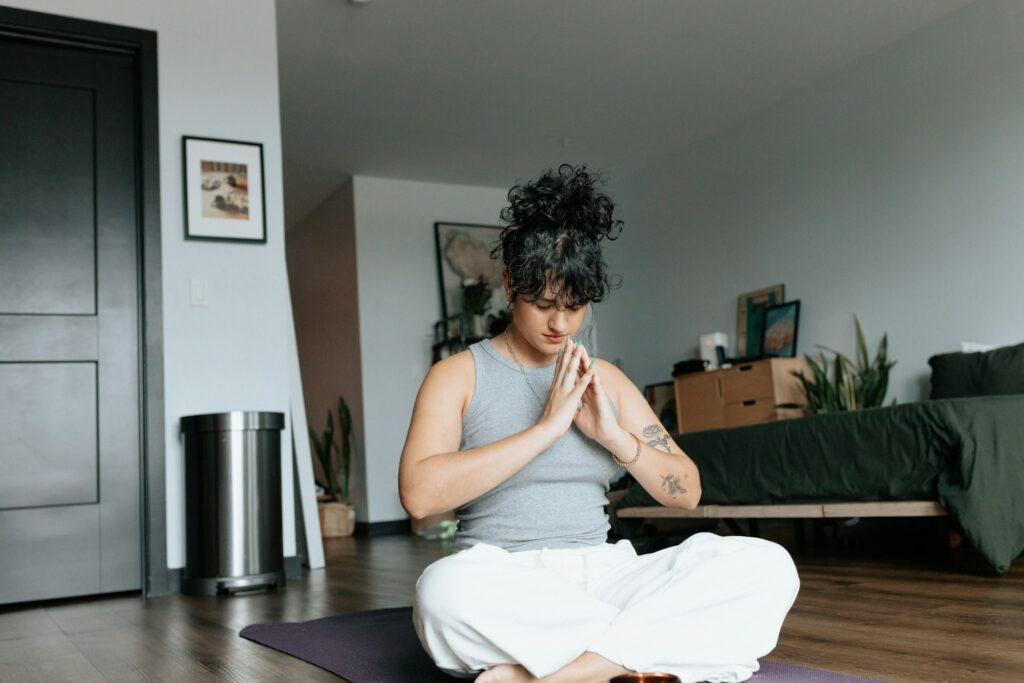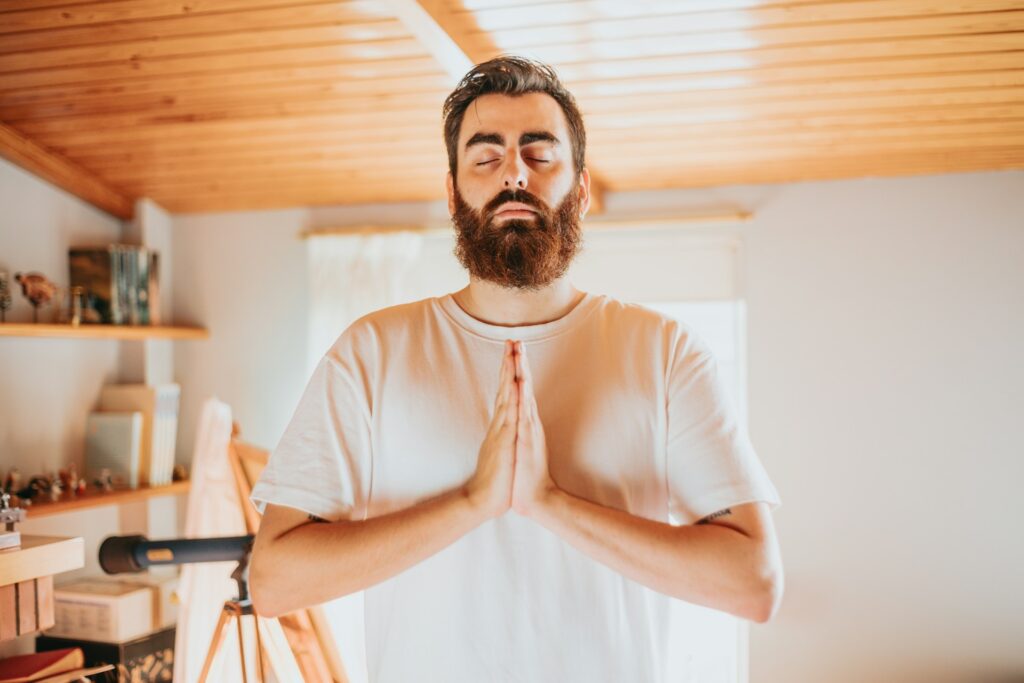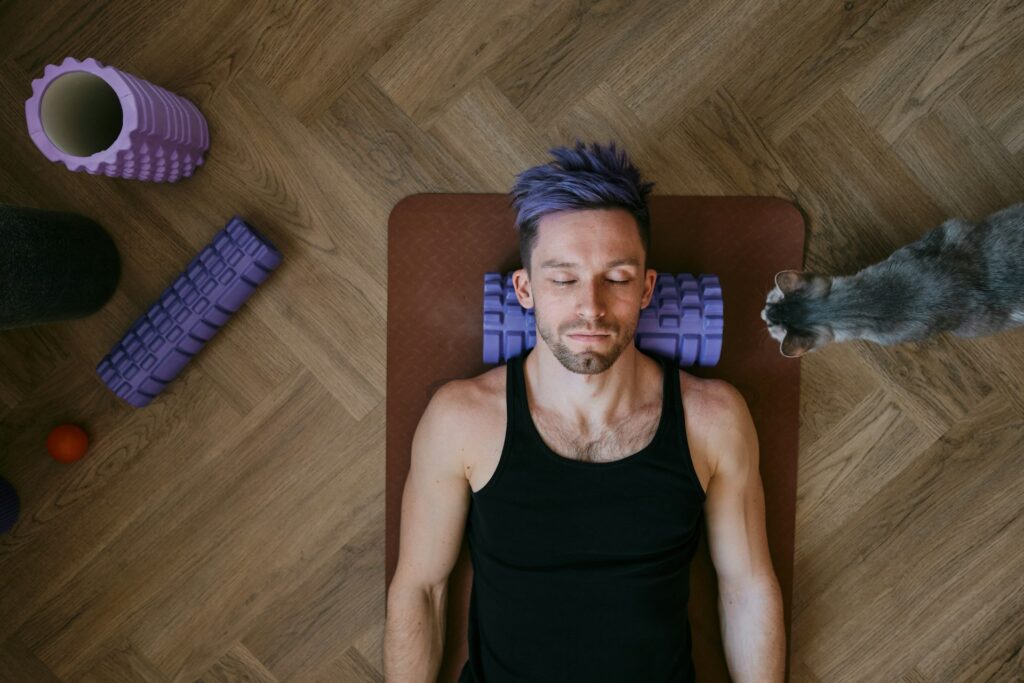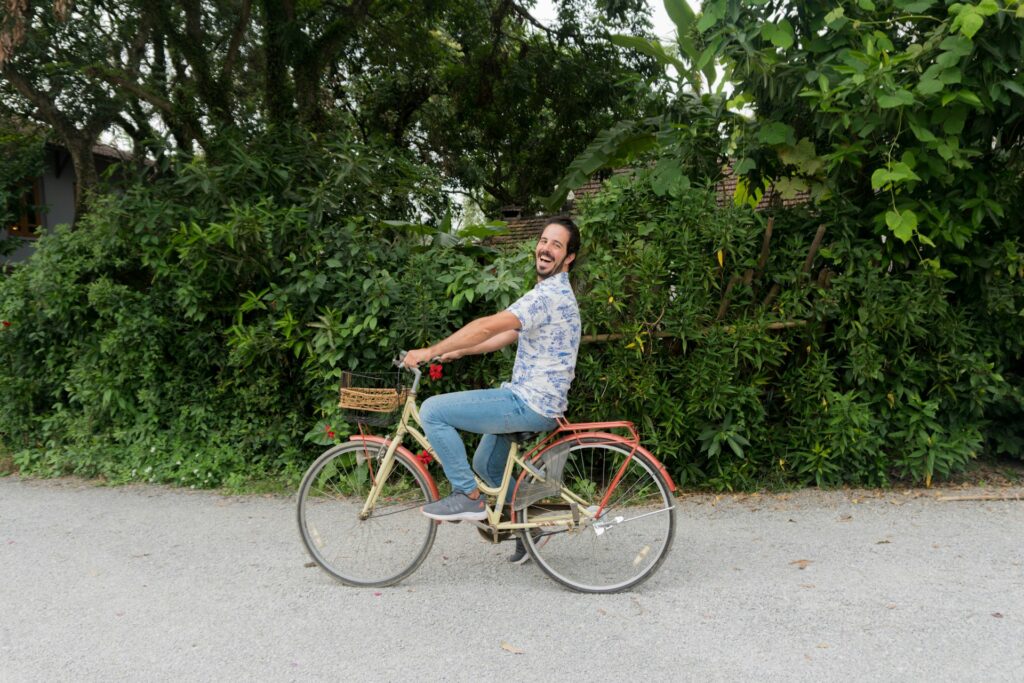We live in a world that is all about the hustle. Work hard, push harder, keep moving, always be busy—that seems to be a lot of people’s mantra.

It’s no surprise, then, that many of us end up feeling guilty when we try to take a step back and simply do nothing. Whether it’s taking a day off or even just an afternoon where you don’t have any set plans, the guilt can be overwhelming. But what if doing nothing wasn’t something to feel bad about? What if, instead, it was exactly what you needed to recharge and live a bit more fully?
If you’ve ever found yourself lying on the couch, scrolling through your phone, or even just staring at the ceiling, convinced you should be doing something more productive, you’re definitely not alone. However, it’s time to flip the script. Doing nothing is not only okay, it’s sometimes necessary for our mental and physical health. Here’s how you can stop feeling guilty about it and start enjoying the time you spend not being busy.
Realise that rest is actually incredibly productive.

The first thing you need to do is reframe your idea of productivity. Rest is just as important as doing—really, studies have proven this many times. In fact, rest is often when your brain processes everything you’ve been working on and makes sense of it. Think about it—when you give yourself a break, you often return with fresh ideas, more energy, and a clearer perspective.
Rather than feeling guilty about it, start thinking of your time spent resting as an investment in your productivity. If you burn yourself out, your creativity and energy will suffer. Give yourself permission to recharge—it’s a vital part of getting things done well.
Ditch the hustle culture mindset.

Hustle culture is everywhere, and it can be tough to escape. It’s easy to feel like you’re not doing enough if you’re not always pushing forward. But here’s the truth: the people who constantly hustle often burn out quickly, and the quality of their work can suffer.
It’s about finding a balance. It’s okay to slow down and allow yourself some breathing space. In fact, you’ll find that being more intentional about when you work and when you rest will actually make you more productive in the long run.
Realise that your value isn’t tied to productivity.

So often, we tie our self-worth to what we achieve, but your value isn’t defined by how much you get done in a day or week. You’re worthy and valuable just as you are, regardless of how much you accomplish.
Remind yourself that you are not a machine designed solely for output. Being constantly busy doesn’t make you more valuable—it can actually detract from your overall health and wellness. Let go of the notion that doing nothing equals being worthless.
Reconnect with what your body needs.

Sometimes, the guilt of doing nothing comes from the feeling that we should be doing “better” or “more.” But it’s important to listen to your body. If you’re feeling tired, stressed, or overwhelmed, it’s a sign that you need rest.
Instead of feeling guilty, acknowledge what your body is telling you. Honour your need for rest, just like you would honour a need for food or water. Doing nothing, or simply taking it easy, can be your body’s way of rebalancing itself.
Learn to live in the present a bit more.

Mindfulness isn’t just about focusing on your breath or practising meditation; it’s also about being present in whatever you’re doing, whether that’s resting or working. When you stop judging your downtime and just allow yourself to be, you’ll find that the guilt starts to fade.
The key is to embrace the present moment without worrying about what you “should” be doing. If you’re relaxing, enjoy it fully without guilt. Don’t let your mind wander to the list of things you feel you should be ticking off.
Remember that downtime is good for your mental health.

Taking breaks, resting, and giving yourself permission to do nothing has huge benefits for your mental health. It reduces stress, prevents burnout, and allows you to process your emotions.
The guilt you feel when you’re resting is often tied to an underlying fear of not doing enough. But it’s important to recognise that regular downtime is essential for keeping your mental health in check. Overworking doesn’t make you stronger—it just makes you tired.
Treat yourself like a friend, not a taskmaster.

Think about the way you treat your friends. If they said they were feeling guilty about taking some time to themselves, you’d probably tell them to relax and not be so hard on themselves. But how often do you treat yourself the same way?
When you feel guilty about doing nothing, pause and ask yourself: would you say the same thing to a friend who was feeling the same way? You deserve the same level of compassion and understanding. Be kind to yourself, and allow yourself to rest without judgment.
Replace “I should” with “I want.”

A lot of the guilt we feel comes from the phrase “I should.” “I should be doing more.” “I should be more productive.” “I should be working harder.” These thoughts aren’t helpful. In fact, they create a sense of obligation and pressure.
Instead, replace “I should” with “I want.” “I want to take some time for myself.” “I want to relax and do nothing for a bit.” Changing this language helps you take ownership of your choices, instead of feeling like you’re falling behind or wasting time.
Get more comfortable saying no.

A big part of learning to relax and do nothing without guilt is being able to say no. Saying no doesn’t make you lazy—it makes you someone who knows their limits and respects their time.
Whether it’s turning down social plans or not taking on an extra project, saying no can create the space you need to rest without guilt. Remember, you don’t owe anyone an explanation for taking care of yourself. Prioritising your own well-being is always a good decision.
Focus on your needs, not external expectations.

It’s easy to get caught up in other people’s expectations. Whether it’s family, friends, or work, everyone has their own ideas about what you should be doing. But at the end of the day, it’s your life, and you know what you need better than anyone else.
Stop worrying about what other people expect and focus on what you need. If you need a day to do absolutely nothing, that’s perfectly fine. You don’t need to justify it to anyone.
Change your perspective on “wasted” time.

Time spent resting or doing nothing isn’t wasted—it’s time spent nurturing your body and mind. Our culture tends to glorify busy-ness, but downtime is what enables us to show up as our best selves when we do get back to work.
Instead of thinking of downtime as a waste of time, recognise it for what it is: a vital part of your life that gives you the energy, creativity, and mental clarity you need to tackle challenges.
Engage in a hobby without pressure.

Sometimes, the idea of doing nothing feels uncomfortable because we feel like we should be doing something “productive.” However, rest doesn’t always mean doing nothing at all.
Having a hobby you enjoy, like reading, drawing, or gardening, can be a great way to unwind without the pressure of being “productive.” The key is to approach it with no expectations. It’s not about finishing a task or achieving something—it’s just about enjoying the process.
Remember that you deserve to enjoy life.

Life isn’t just about work, responsibilities, and meeting expectations. You deserve to enjoy the little moments. Whether that’s having a lazy afternoon or simply sitting with your thoughts, taking time for yourself is an important part of living a balanced life.
Don’t let guilt rob you of the joy that comes from simply being. You deserve to enjoy your downtime without shame.


